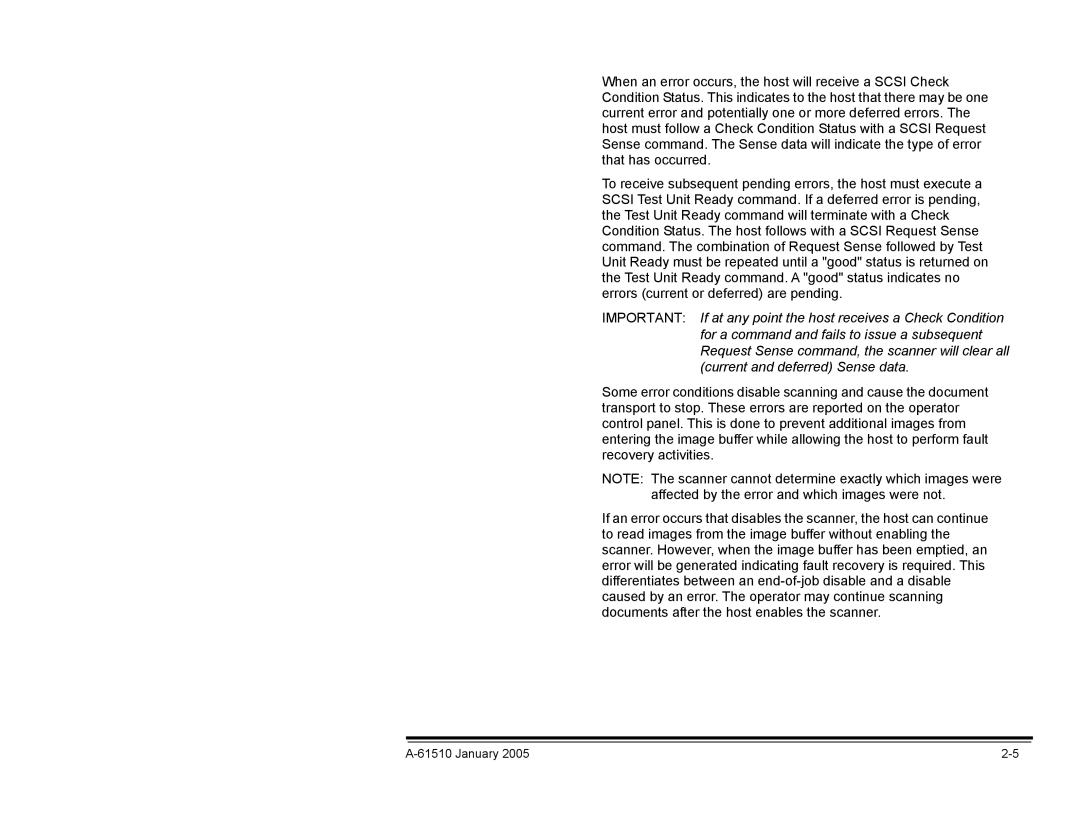When an error occurs, the host will receive a SCSI Check Condition Status. This indicates to the host that there may be one current error and potentially one or more deferred errors. The host must follow a Check Condition Status with a SCSI Request Sense command. The Sense data will indicate the type of error that has occurred.
To receive subsequent pending errors, the host must execute a SCSI Test Unit Ready command. If a deferred error is pending, the Test Unit Ready command will terminate with a Check Condition Status. The host follows with a SCSI Request Sense command. The combination of Request Sense followed by Test Unit Ready must be repeated until a "good" status is returned on the Test Unit Ready command. A "good" status indicates no errors (current or deferred) are pending.
IMPORTANT: If at any point the host receives a Check Condition for a command and fails to issue a subsequent Request Sense command, the scanner will clear all (current and deferred) Sense data.
Some error conditions disable scanning and cause the document transport to stop. These errors are reported on the operator control panel. This is done to prevent additional images from entering the image buffer while allowing the host to perform fault recovery activities.
NOTE: The scanner cannot determine exactly which images were affected by the error and which images were not.
If an error occurs that disables the scanner, the host can continue to read images from the image buffer without enabling the scanner. However, when the image buffer has been emptied, an error will be generated indicating fault recovery is required. This differentiates between an
|
